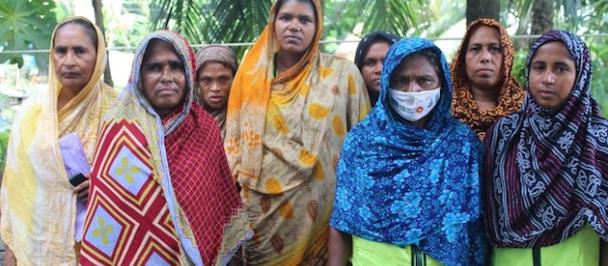The progress in achieving the seven targets put forward by the Sendai Framework for Disaster Risk Reduction (SFDRR) cannot be measured without proper mechanism for monitoring and reporting, said speakers of a seminar held at a hotel in Dhaka on 24 November.
They also emphasised on proactive, people-centric approach to disaster management at the seminar titled “Implementation of Sendai Framework for Disaster Risk Reduction (SFDRR)”. Organised by the Ministry of Disaster Management and Relief (MoDMR) and National Resilience Programme (NRP), of which United Nations Development Programme (UNDP) is a technical partner, the programme aimed to sensitise the Parliamentary Standing Committee on the state of SFDRR implementation.
The seminar’s chief guest, Dr Md Enamur Rahman, state Minister of MoDMR, pointed out that despite Bangladesh’s success in disaster risk reduction, proper documentation and reporting remains a challenge. He continued that the Parliamentary Standing Committee has a strong role to play in ensuring a coordinated effort.
“In order to build a truly resilient nation, implementation and monitoring of the Sendai framework is essential. It is a widely acclaimed, inclusive framework for disaster risk reduction. Bangladesh recognises this framework and the government is committed to realising the goals set by SFDRR,” he said. “It is not only the responsibility of one agency to implement SFDRR. Instead, all government and non-government agencies and stakeholders should come forward.”
Chairperson of the parliamentary standing committee, AB Tajul Islam, who spoke as a special guest, pointed out that the Sendai framework will play a complementary role in realising sustainable development goals (SDGs). “The committee continues to play an integral role in disaster management, by mobilising local governments at a grassroots level to tackle disasters.”
He also called for increasing investment in disaster risk reduction.
Sudipto Mukerjee, Resident Representative of UNDP Bangladesh, stressed on good governance as a core part of effective disaster management and risk reduction.
“Firstly, every person in a constituency must be aware of the risks, and there must be good governance at the grassroots level in order to ensure convergence. Financing for disaster risk reduction is necessary, but it’s even more important to ensure that investment is being utilized properly,” he said.
Swedish Ambassador Charlotta Schlyter also mentioned the importance of good governance. “There should be better governance, in fact, as there is always a scope to improve,” she said, adding that collaboration within and across borders is important for effective preparedness.
Presiding over the ceremony, Md Shah Kamal, Senior Secretary of MoDMR in his speech said, “Bangladesh has truly made incredible progress in disaster management. From an entirely reactive model, we have now moved to being entirely proactive. Despite being a role model for the rest of the world when it comes to disaster risk reduction in events of flood and cyclone, there are some disasters such as earthquakes, for which the country’s preparedness level is still not satisfactory.”
However, the level of awareness about early warning systems and natural disasters at grassroots levels is exemplary, and that has greatly minimised the loss of life and property, he added.
National Project Coordinator of NRP, Md Mohsin, presented the keynote paper, in which he outlined the Sendai framework, highlighting its main implications for Bangladesh.
Members of the parliamentary standing committee on MoDMR – Solaiman Haque Joarder, Panchanan Biswas, Aftab Uddin Sarker, Mir Mostaque Ahmed Robi, Jewel Areng, Mujibur Rahman Chowdhury, Masud Uddin Chowdhury, and Kazi Kaniz Sultana were present among others at the seminar.

 Locations
Locations



